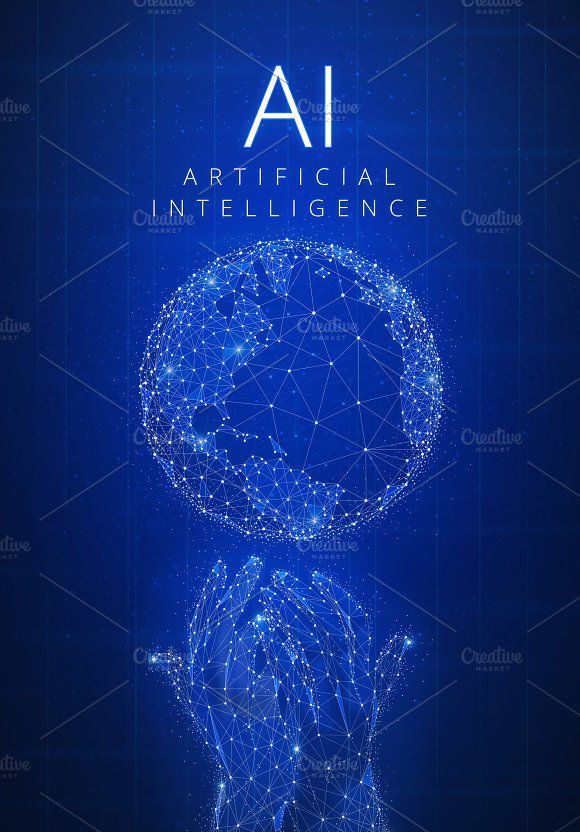THE TRANSFORMATIVE LANDSCAPE OF ARTIFICIAL INTELLIGENCE
he transformative world of artificial intelligence (AI) is reshaping how we live, work, and interact. AI technologies are now embedded in everyday life—from voice assistants like Siri and Alexa to recommendation systems on Netflix and Spotify. In business, AI enhances productivity through automation, predictive analytics, and personalized customer experiences.
AI's impact is also profound in fields like healthcare, where it's used for early diagnosis, personalized medicine, and robotic surgeries. In education, adaptive learning platforms cater to individual student needs. Meanwhile, AI-driven innovations are revolutionizing industries like finance, logistics, and even creative arts, enabling everything from fraud detection to autonomous vehicles and AI-generated music or art.
Ethical considerations are crucial, too. Issues such as data privacy, algorithmic bias, and job displacement are hot topics. There's an ongoing debate about AI's role in decision-making and the need for transparent, accountable systems.
Artificial intelligence (AI) is no longer just a buzzword—it's a driving force behind some of the most significant changes in our world today. From revolutionizing industries to reshaping our daily lives, AI's transformative power is both awe-inspiring and disruptive. In this blog, we'll explore how AI is changing the landscape across various sectors and the challenges and opportunities it presents.
1. AI in Everyday Life: Convenience Redefined
AI has seamlessly integrated into our daily routines. Voice assistants like Siri, Alexa, and Google Assistant make hands-free operations possible, from setting reminders to controlling smart home devices. Recommendation systems on Netflix, Spotify, and YouTube personalize our entertainment, enhancing user experience through AI-driven algorithms that learn our preferences.
But it doesn't stop there. AI is also powering smart appliances, self-driving cars, and even virtual shopping assistants, all aimed at making life more convenient and efficient. The impact of AI in everyday life is a testament to its potential to redefine how we live.
2. Revolutionizing Industries: Efficiency and Innovation
Healthcare: AI is revolutionizing healthcare with early diagnosis tools, personalized medicine, and robotic-assisted surgeries. Machine learning algorithms analyze medical images with remarkable accuracy, assisting doctors in detecting diseases like cancer at an early stage.
Finance: In the financial sector, AI enhances fraud detection, streamlines customer support through chatbots, and provides algorithmic trading, which maximizes investment returns.
Education: Adaptive learning platforms are personalizing education by catering to individual student needs, making learning more effective and inclusive.
Transportation and Logistics: Self-driving vehicles and AI-powered logistics systems are optimizing supply chains, reducing human error, and enhancing safety.
3. Creative AI: The New Age of Art and Entertainment
AI isn't just about data and automation—it’s also making waves in the creative world. AI-generated music, artwork, and even literature are pushing the boundaries of creativity. Tools like DALL-E and Mid-journey generate stunning visual art, while language models contribute to screenwriting and content creation.
However, this raises questions about authenticity and intellectual property. As AI becomes a co-creator, who owns the art? This debate continues to shape the narrative of creative AI.
4. Ethical Considerations: Navigating the Challenges
With great power comes great responsibility. As AI systems become more integrated into decision-making processes, ethical challenges arise:
- Data Privacy: The collection and use of personal data by AI systems pose significant privacy concerns. Transparent data usage policies and robust security measures are crucial.
- Bias and Fairness: AI systems can inherit biases present in training data, leading to discriminatory outcomes. Ensuring fairness and inclusivity in AI algorithms is a priority.
- Job Displacement: Automation through AI threatens to displace jobs, particularly in sectors relying on routine tasks. However, it also creates new roles, emphasizing the need for reskilling and upskilling.
5. The Road Ahead: Opportunities and Innovations
AI's future is limitless. Quantum computing promises to accelerate AI's capabilities, solving complex problems beyond current possibilities. Meanwhile, AI in space exploration is enabling autonomous rovers and intelligent systems to analyze distant planets.
As AI continues to evolve, collaboration between policymakers, tech companies, and communities is essential to navigate its ethical and societal impacts. With responsible development and deployment, AI can be a force for good, driving progress and enhancing human potential.
Conclusion: Embracing the AI Revolution
The transformative world of artificial intelligence is here to stay, impacting every facet of human life. As we embrace this revolution, it's crucial to balance innovation with ethical responsibility. By doing so, we can harness the power of AI to create a more efficient, inclusive, and creative world.
Are you ready to be part of the AI-driven future? Let's engage, innovate, and shape a better tomorrow.....,
- Get link
- X
- Other Apps
Labels
AI NEWS SOCIAL MEDIA TECHNOLOGY- Get link
- X
- Other Apps

Comments
Post a Comment
If you have any doubts , You can let me know